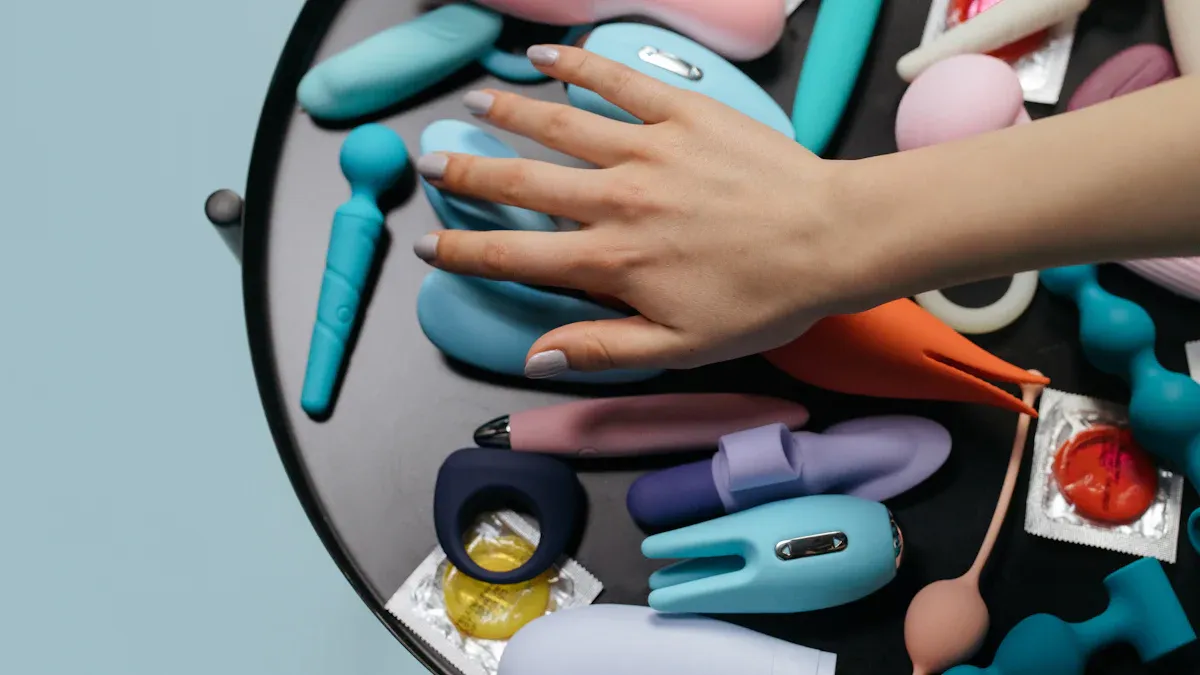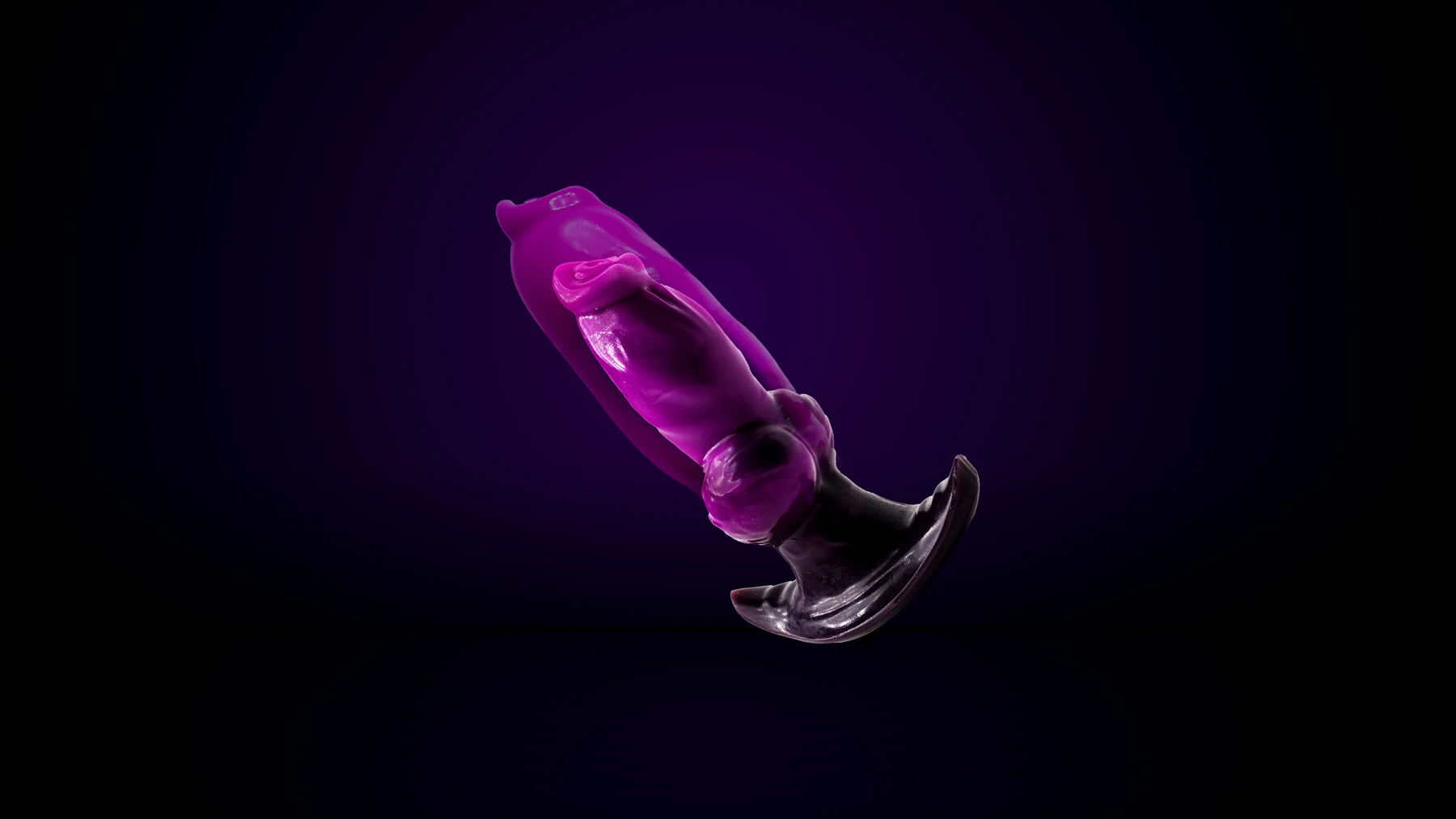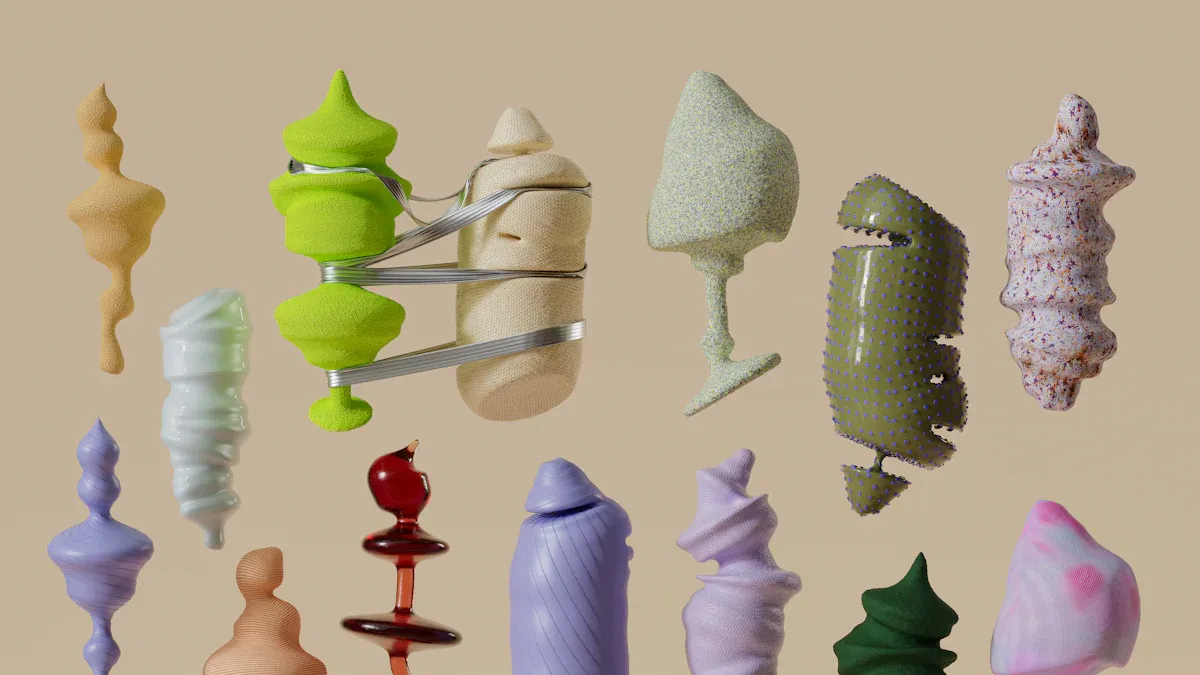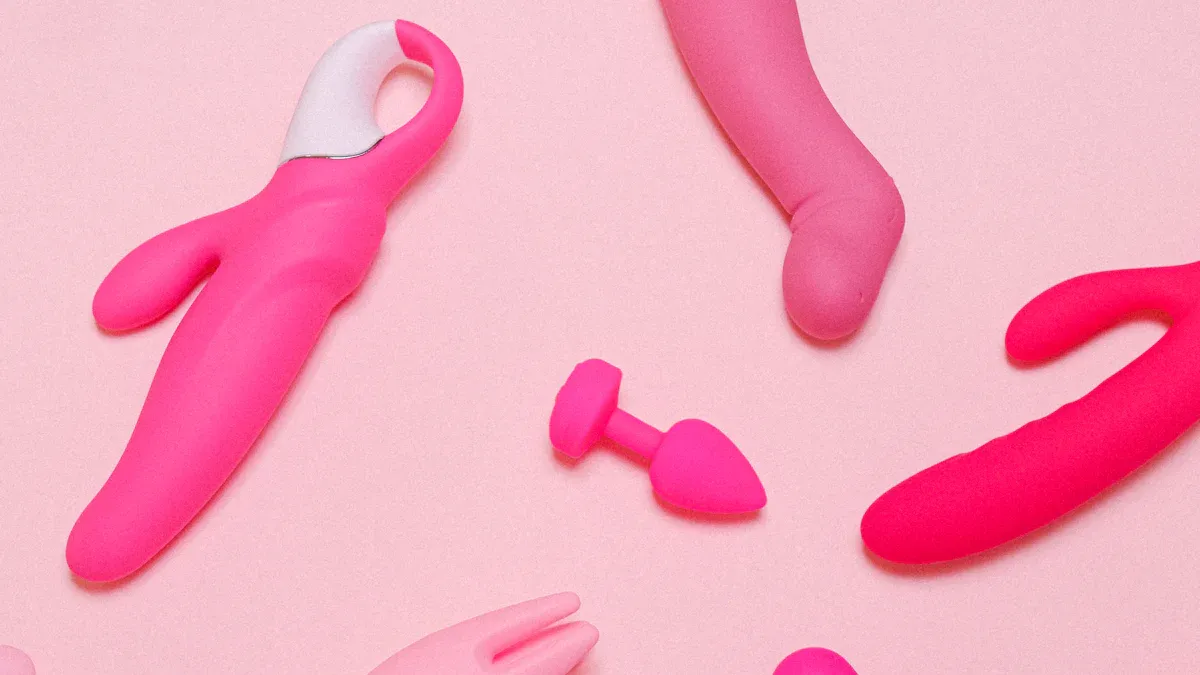Are TPE dildos safe for your body

You may wonder if tpe dildos are safe for your body. Tpe sex toys, including tpe dildos like Dragon Dildos, Banana Dildos, and Face Dildos, use non-toxic materials and do not contain phthalates. These tpe dildos feel soft and body safe, but their porous surface can trap bacteria. Proper hygiene becomes harder with tpe sex toys, which raises safety issues. You should choose body safe sex toys made from non-toxic sex toys for better hygiene and long-term body safe use.
TPE Sex Toys Overview

What Is TPE?
You may see TPE listed on many sex toys, including dildos. TPE stands for thermoplastic elastomer. This material feels soft and flexible, which makes it popular for body safe toys. Many companies use TPE to make tpe dildos, tpe penis toys, and other tpe sex toys because it can mimic the feel of skin. You can find the best tpe sex toys in many shapes and sizes.
TPE does not contain phthalates, which are chemicals banned in children’s toys in many countries. Phthalates can cause health problems, so you want to avoid them. TPE sex toys are often labeled as non-toxic and body safe. However, the sex toy industry does not have strong rules or safety studies for these materials. You may not find specific research that proves tpe dildos are completely safe for your body.
Note: The sex toy industry lacks strict regulation. You should always check what materials are in your toys and buy from trusted brands.
TPE Dildos and Safety
TPE dildos feel soft and body safe at first. You may enjoy the realistic texture and flexibility. However, TPE is a porous material. This means tiny holes exist on the surface, even if you cannot see them. Bacteria, fungi, and viruses can hide in these pores. Even with careful cleaning, you cannot fully sterilize a tpe dildo. Over time, this can lead to irritation, burning, or infections if you use the toy often.
You should know that sharing tpe dildos without a condom increases the risk of spreading infections. Cleaning between uses is very important, but it does not remove all germs. Some people report problems like burns or abrasions from poorly made tpe sex toys. You want to choose body safe options and replace your tpe dildo if it shows any damage.
TPE sex toys offer a soft, body safe feel.
TPE dildos do not have phthalates.
TPE is porous, so long-term safety is a concern.
Proper cleaning is critical, but not always enough.
Always use barrier protection if you share tpe dildos.
TPE Dildos: Risks
Porosity and Bacteria
TPE dildos have a soft and flexible feel, but their porous surface creates a hidden danger. Tiny holes in the material trap bacteria, viruses, and even bodily fluids. You cannot see these pores, but they allow germs to hide deep inside the toy. When you use a tpe dildo, you risk pushing these germs back into your body. This can lead to irritation, burning, or even infection.
Experts warn that porous sex toy materials like tpe and tpr absorb fluids and bacteria beneath the surface. Even if you clean the outside, microbes can stay inside the toy. Standard cleaning methods do not reach these hidden germs. This makes it nearly impossible to fully sanitize a tpe dildo. You face a real risk of infection, especially if you use the toy for vaginal or anal play.
Tip: Always use a condom with tpe dildos to lower the risk of infection. Never share tpe penis toys or tpe anal toys without protection.
Cleaning TPE Dildos
You may think you can clean a tpe sex toy with soap and water, but this does not make it body safe. The porous nature of tpe means that bacteria and viruses can survive inside the toy, even after washing. You cannot boil or use harsh chemicals on tpe dildos because the material can break down or melt. This makes proper hygiene very hard to achieve.
Here are some cleaning tips for tpe sex toys:
Wash your tpe dildo with warm water and mild soap after every use.
Dry the toy completely before storing it.
Use a condom every time to help keep the toy cleaner.
Replace your tpe dildo if you notice any tears, changes in texture, or strange smells.
Note: Experts say that tpe sex toys are almost impossible to fully sanitize. You should avoid using them for vaginal or oral play if you want the highest level of safety.
Lubricant Compatibility
TPE dildos work best with water-based lubricants. Oil-based or silicone-based lubes can damage the material. If you use the wrong lubricant, your tpe dildo may become sticky, break down, or lose its body safe feel. This can make the toy unsafe and increase the risk of infection.
You should always check the label before using any lubricant. Stick to water-based options to keep your tpe dildo in good shape. If you notice any changes in the toy’s texture or color, stop using it right away.
Reminder: Using the right lubricant helps protect your tpe sex toys and keeps them safer for your body.
Body Safe Sex Toys: Alternatives

Medical-Grade Silicone
You may want a toy that feels soft but keeps you safe. Medical-grade silicone stands out as a top choice. This body-safe material is non-porous, so it does not trap bacteria or fluids. You can clean silicone toys with soap and water. You can even boil them for extra safety. Silicone is hypoallergenic and durable. Many experts recommend silicone as one of the healthiest sex toy materials. When you choose medical-grade silicone, you lower your risk of irritation and infection.
Glass and Metal
Glass and metal toys offer another level of safety. These non-porous materials do not absorb germs or fluids. You can sterilize them by boiling or using special cleaners. Market research shows that glass dildos, made from borosilicate glass, and metal dildos, made from stainless steel or aluminum, are easy to clean and last a long time. Glass toys feel smooth and can be used for temperature play. Metal toys provide weight and a polished finish. Both options are safe if you check for chips or cracks before use.
Here is a quick comparison of popular sex toy materials:
Material | Hygiene | Durability | Safety | Extra Features |
|---|---|---|---|---|
Medical-Grade Silicone | Non-porous, easy to clean | Durable | Hypoallergenic, body safe | Flexible, soft feel |
Glass (Borosilicate) | Non-porous, easy to sterilize | Very strong | Body safe, no chemicals | Good for temperature play |
Metal (Stainless Steel) | Non-porous, easy to clean | Very durable | Body safe, rust-resistant | Heavy, polished finish |
TPE | Porous, hard to clean | Less durable | Not fully body safe | Soft, flexible, but risky |
How to Choose Safer Materials
You can use a checklist for choosing a safe sex toy. Look for clear labels like “medical-grade silicone” or “phthalate-free.” Buy from trusted brands. Avoid toys labeled “for novelty use only.” Experts say you should avoid sex toy materials to avoid, such as jelly rubber, PVC, TPE, and unknown metals. These materials can trap bacteria or contain harmful chemicals.
Here are some tips for picking healthier sex toy materials:
Choose non-porous toys for easy cleaning.
Inspect toys for changes in texture, smell, or color.
Store toys in clean, dry pouches.
Replace toys if you see any damage.
You can keep your body safe by following these steps and picking safe materials for sex toys. Knowing what materials to avoid in a sex toy helps you make better choices for your health.
TPE Dildo Safety Tips
Using Condoms
You can lower your risk of infection by using condoms with tpe dildos. Tpe is a porous material, so bacteria and viruses can hide inside even after cleaning. Studies show that viruses like HPV can stay on tpe toys for hours, even after washing. Covering your toy with a condom adds a layer of protection. This helps keep your play body safe. Always use a new condom each time you use the toy, especially if you share it with someone else. Latex, polyurethane, or polyisoprene condoms work best. Avoid animal skin condoms because they do not protect against infections. Use only water-based lubricants with both tpe and condoms to prevent damage.
Tip: Using condoms is one of the most important dildo safety tips for keeping your body safe with tpe toys.
When to Replace
You should check your tpe dildo often for signs of wear. Look for tears, changes in texture, or strange smells. These signs mean bacteria may have built up inside the toy. Replace your tpe dildo right away if you see any damage. Even the best tpe sex toys do not last forever. Regular replacement keeps your play body safe and lowers your risk of infection. If you use your toy often, consider replacing it every few months.
Check for damage before and after each use.
Replace your toy if it feels sticky or changes color.
Do not use a toy that smells odd or looks worn out.
Sourcing Quality TPE Sex Toys
Choosing high-quality tpe toys helps protect your health. Reputable brands use premium tpe that is more durable and body safe. Trusted companies follow strict safety standards and test their products for quality. They use medical-grade, phthalate-free tpe to make sure their toys are non-toxic. Look for brands that show clear safety labels and have good customer reviews. Avoid cheap or counterfeit toys, as these may use unsafe materials. Buying from reliable sources helps you find the best tpe sex toys and keeps your play body safe.
Buy from brands with clear safety certifications like CE or FDA.
Check for transparent supply chains and quality assurance.
Read customer feedback and return policies before buying.
You learned that TPE dildos do not contain phthalates and start out non-toxic. However, their porous surface traps bacteria, mold, and fluids, making full cleaning impossible. Experts warn that this can lead to infections, especially with vaginal or anal use. Clinical research shows that non-porous materials like silicone, glass, and metal offer better cleaning and lower infection risk. For long-term health, choose non-porous toys and always inspect your toys before use.
Remember: Prioritize hygiene and informed choices to protect your health.





